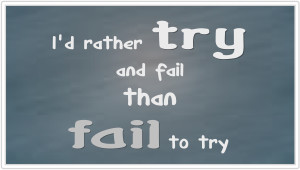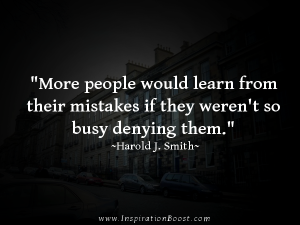 I surprised my wife Marian this weekend with an overnight at the Herrington Inn, a lovely hotel on the Fox River in Geneva, Illinois. It was a nice break after feeling cooped-up during the arctic freeze that forced us into hibernation. A cozy getaway was a perfect remedy.
I surprised my wife Marian this weekend with an overnight at the Herrington Inn, a lovely hotel on the Fox River in Geneva, Illinois. It was a nice break after feeling cooped-up during the arctic freeze that forced us into hibernation. A cozy getaway was a perfect remedy.
We had dinner at one of our favorite restaurants (Niche), totally relaxing in a quiet atmosphere of subdued lighting, nice music, and fine cuisine. It was just what we needed.
During dinner we talked about several topics of interest to us. Marian recently returned to school and was sharing some of the interesting things she is learning. I reflected on my recently published book “Bringing Respect Back: Communicating Without the Conflict” and some new goals I set for myself in 2014 and going forward. It was pretty clear that both of us are being stretched beyond the norm in our pursuits. Yet it was one of those moments when you feel bonded in support of each other’s dreams. I am proud of her and I know she feels likewise toward me.
At one point I looked into my wife’s eyes and said, “I’d rather try and fail, than fail to try.” Marian agreed. Trying is not failing. Failure is not trying. In fact, I prefer to redefine failure as “learning”. So my quote would read, “I’d rather try and learn, than fail to try.” One must factor in mistakes, setbacks, and resistance in their pursuit of dreams. These are opportunities to learn, grow and succeed. I call it “failing in the right direction”. Normalize failing. Understand it as learning and you will keep trying. It’s what kept Thomas Edison and others on task to accomplish their goals.
How You Know You Are Failing In The Right Direction
Your words and your actions are congruent
It makes no sense to talk about making changes in your life and/or your relationships and do nothing about it. If your actions are not matching your words, than you are failing to try. However, if you actively choose to work on doing what you say you want than you are congruent. So if you say you want to be more loving to your spouse, you will make a conscious attempt to do it, knowing you won’t be 100% perfect. I said I wanted to write a book so I had to set aside time (free time) to do it. I could think of a lot of other things I wanted to do that were easier but that meant I would “fail to try” writing my book. This was unacceptable to me.
You are willing to try new approaches
Couples often see me because they are mired in conflict. They cannot seem to resolve issues– they just stockpile them. Consequently, they cannot achieve the level of intimacy they long for in the relationship. The problem is their approach. When I work with them, they learn more effective ways to communicate and connect. The key to their success is a mutual willingness to try a new approach.
How about you? Are you willing to try a new method? You open to learn from others? Or, are you more predisposed to doing things your way? People who fail in the right direction will try new approaches until they find one that works and stick with it. The key is they don’t give up. The outcome is too important.
You keep trying even when you don’t get immediate results
We live in a culture designed to offer immediate gratification. As a result, we are conditioned to expect results quickly. In previous generations, people were accustomed to waiting for things: letters to arrive by mail, saving money in order to purchase cars, furniture, clothing, etc… Today, we can have what we want when we want it. “Buy now, pay later.”
Two brain mechanisms necessary for survival are frustration tolerance and impulse control. Because of instant gratification many people today struggle with impulse control and low frustration tolerance. Consequently, when things take time or don’t happen right away there is a tendency for some to give up. Immediate gratification needs take over and they find a substitutionary way to cope: impulse buying, drinking, eating, sexual pleasure, etc…
If you want to achieve a goal or purpose in life then you must keep trying even when your efforts don’t give you immediate results. Expect resistance. Factor it in. This is the element that will build your character and make you stronger if you face it head on. So, if you are trying to rebuild trust with your spouse and you are met with distance, don’t stop trying. In a loving and respectful manner continue to convey your words followed by actions that are congruent. Over time, your spouse will likely respond in the manner you wish.
You learn from the mistakes that happen along the way
 In the course of writing my book I made several mistakes along the way. Some were in writing, which my editor caught and corrected. Other mistakes occurred in the publishing phase learning the differences in ebook and print versions. Notice I used the word “learning”? Facing obstacles, making mistakes, and working through them is a rewarding aspect of the journey. The knowledge gained is integrated and informs future behavior. Each lesson learned moves you in the direction of your goal. Normalize mistakes. They are your companions on the journey toward success.
In the course of writing my book I made several mistakes along the way. Some were in writing, which my editor caught and corrected. Other mistakes occurred in the publishing phase learning the differences in ebook and print versions. Notice I used the word “learning”? Facing obstacles, making mistakes, and working through them is a rewarding aspect of the journey. The knowledge gained is integrated and informs future behavior. Each lesson learned moves you in the direction of your goal. Normalize mistakes. They are your companions on the journey toward success.
You eventually function at a higher level
I remember how I felt just before I pressed the send button that gave permission for my book to be published. It was quite emotional for me. I was about to bring “my baby” out for public exposure. To say I struggled is an understatement. I did not want anyone criticizing my work. All my deepest fears and insecurities surfaced. I could feel the resistance. Then I took a moment to think about the reason I wrote the book and remembered it was not about me, but about helping people and influencing culture on the need to bring respect back. With a surge of energy, my finger hit the send button and I felt an incredible sense of peace.
Since then I have felt different. The only way I can explain it is by the story Chuck Yeager told in 1947 when he reached Mach I and broke the sound barrier. Prior to this feat, every attempt was met with the most intense resistance. Cabin pressure in the aircraft felt like it was going to implode. However, when Yeager broke the sound barrier, he made the following observation: “I thought I was seeing things! We were flying supersonic! And it was as smooth as a baby’s bottom.”
I fly much smoother these days when it comes to my vision to influence culture by bringing respect back. My goals are loftier, matched by higher motivation, energy, and focus. I never envisioned the things I now pursue. My primary purpose is to make a difference in the lives of others. Now it takes an expanded approach. Lord willing, I will follow this path.
In my work, I have observed couples functioning at a higher level. Many of these survived infidelity and other distressing problems. How did they achieve this? They did so by following the steps I discussed above. They decided to “try” without a guarantee of a successful outcome. When it was difficult they agreed not to give up and keep working together. They tried new approaches I offered and when they made mistakes, they learned from them. They understood they were “failing in the right direction”. Over time, they began to function at a higher level.
My hope for you is to keep trying to achieve your dreams, be they personal or professional. Don’t be dissuaded by setbacks or obstacles. These are learning opportunities you will need to build character, teach skills, give you wisdom. This is failing in the right direction. “I’d rather try and fail than fail to try.”
